Study of the properties of natural isolates of actinomycetes
Actinomycetes are able to produce an extremely wide range of biologically active compounds. This determines their extremely important ecological role. As producers of a wide range of enzymes, these prokaryotes are one of the main groups of soil-forming microorganisms. By synthesizing phytohormones, siderophores, etc., they contribute to the growth and development of plants, and due to the synthesis of antibiotic compounds, they increase their resistance to phytopathogens.
Actinomycetes are permanent inhabitants of the intestines of insects, in particular termites, and contribute to the breakdown of cellulose, lignin and other polymers. Some species of actinomycetes can have phytopathogenic properties and also cause human infectious diseases, such as actinomycosis. However, what is most impressive is the range of antibiotic compounds that these microscopic factories are able to produce. Two-thirds of antibiotics known today are of actinomycete origin.
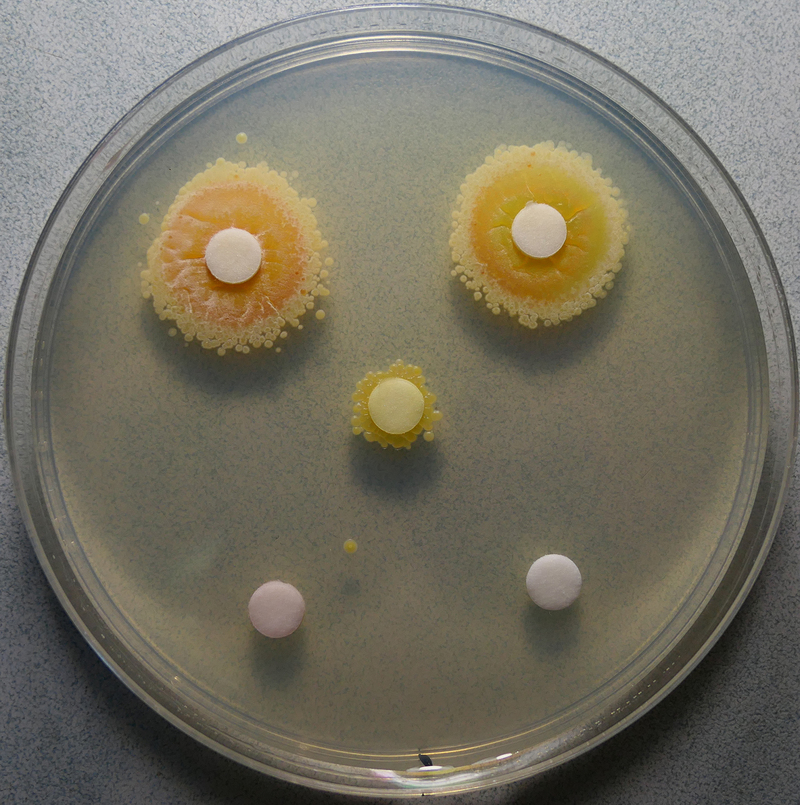
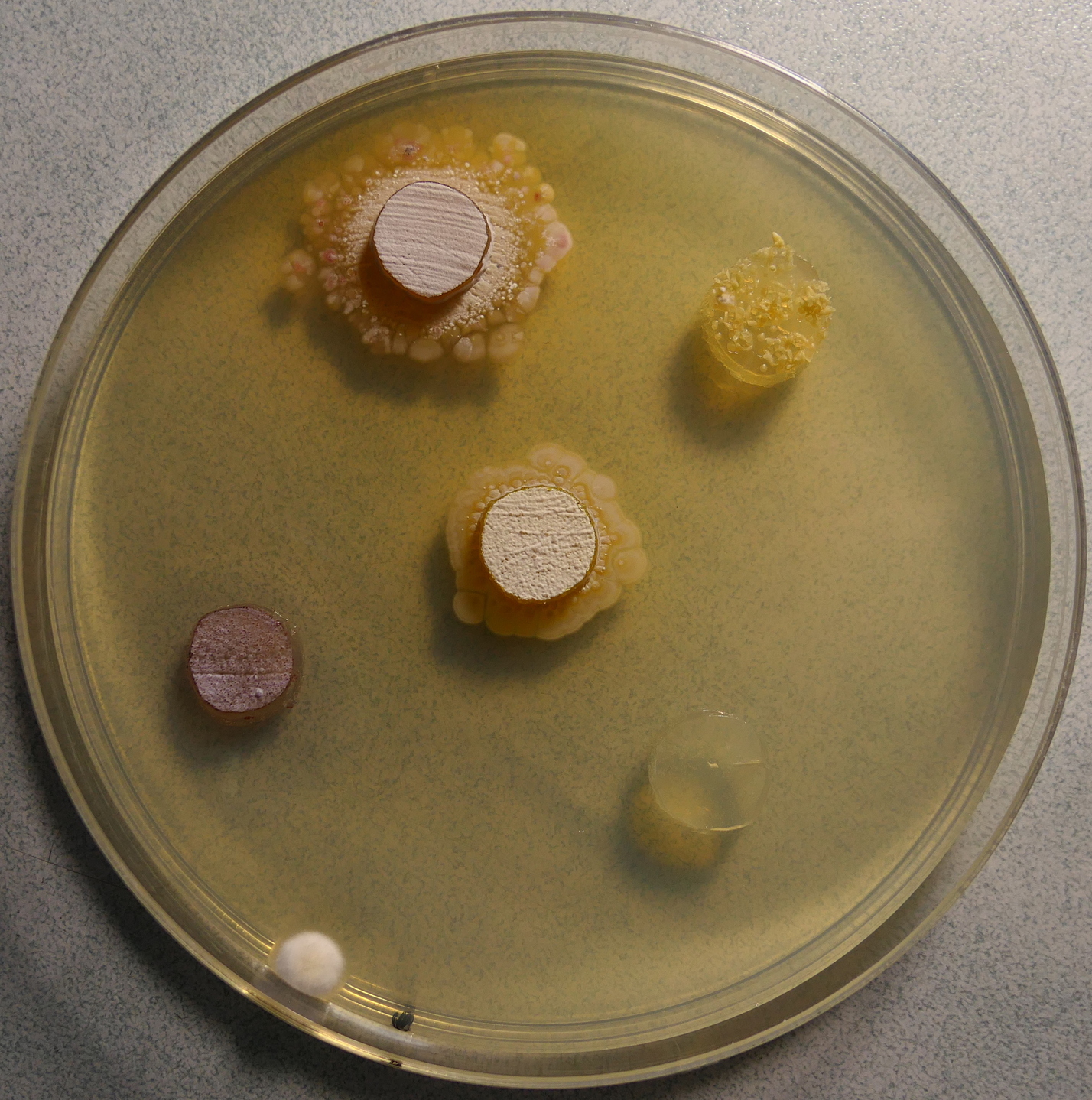
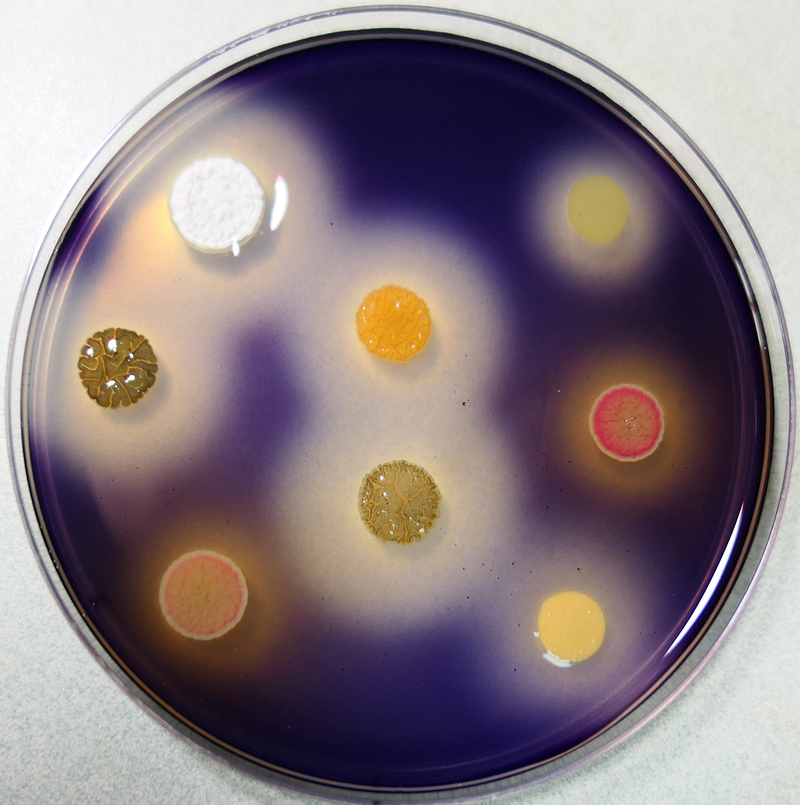
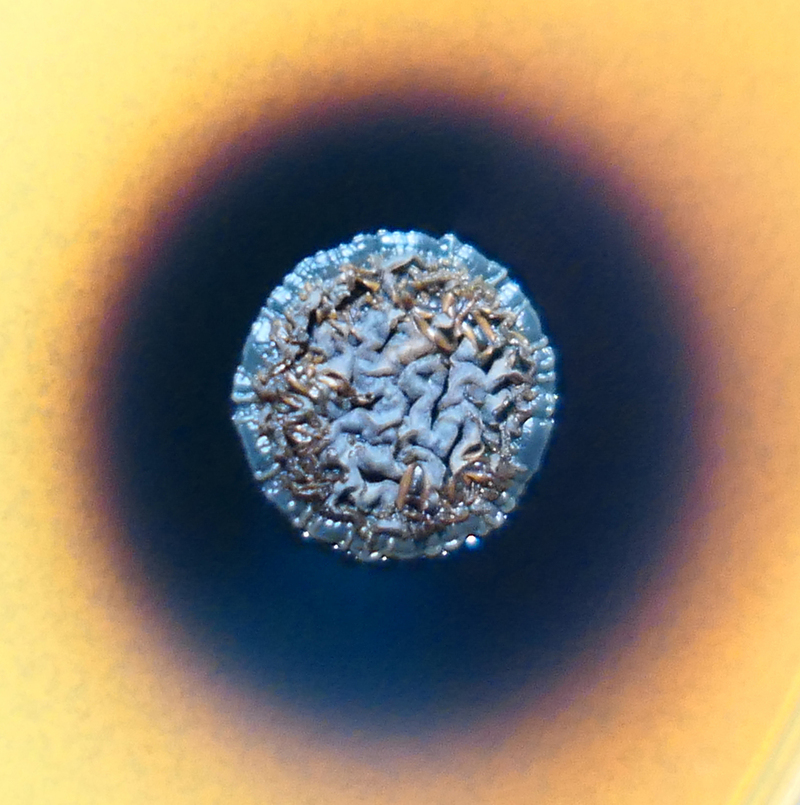
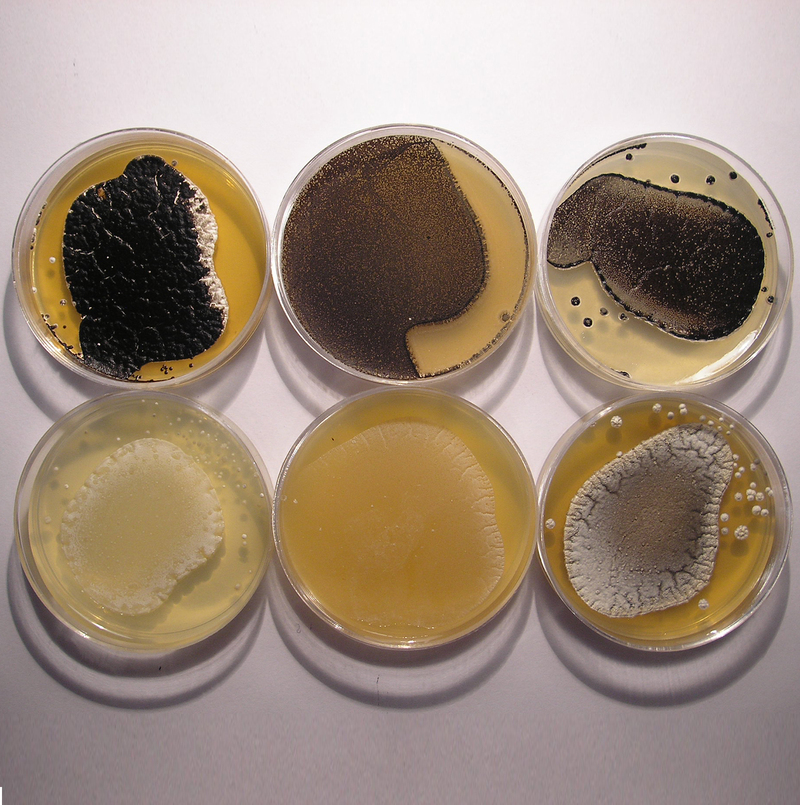
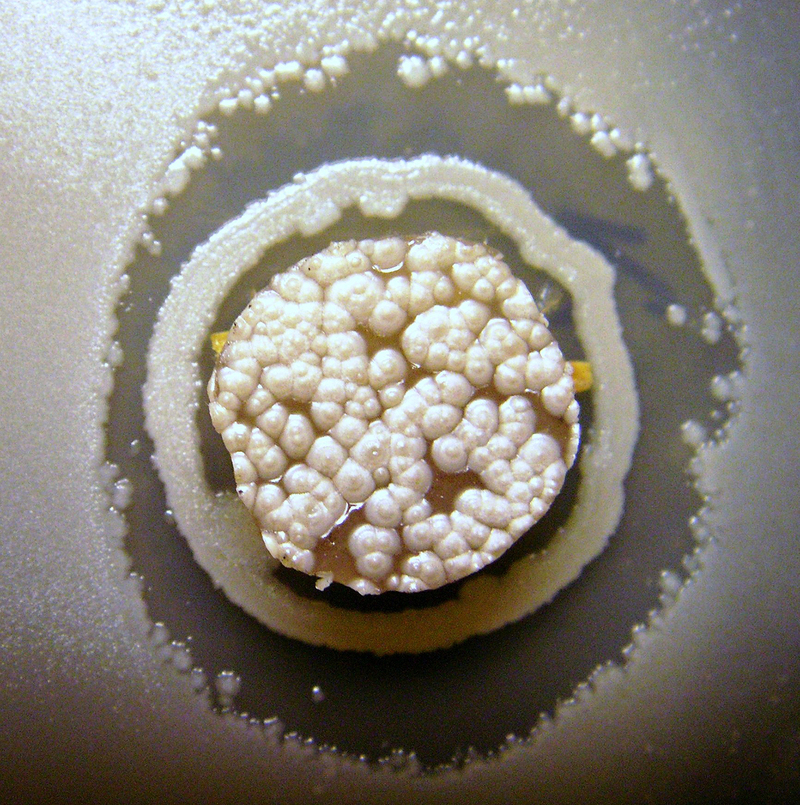
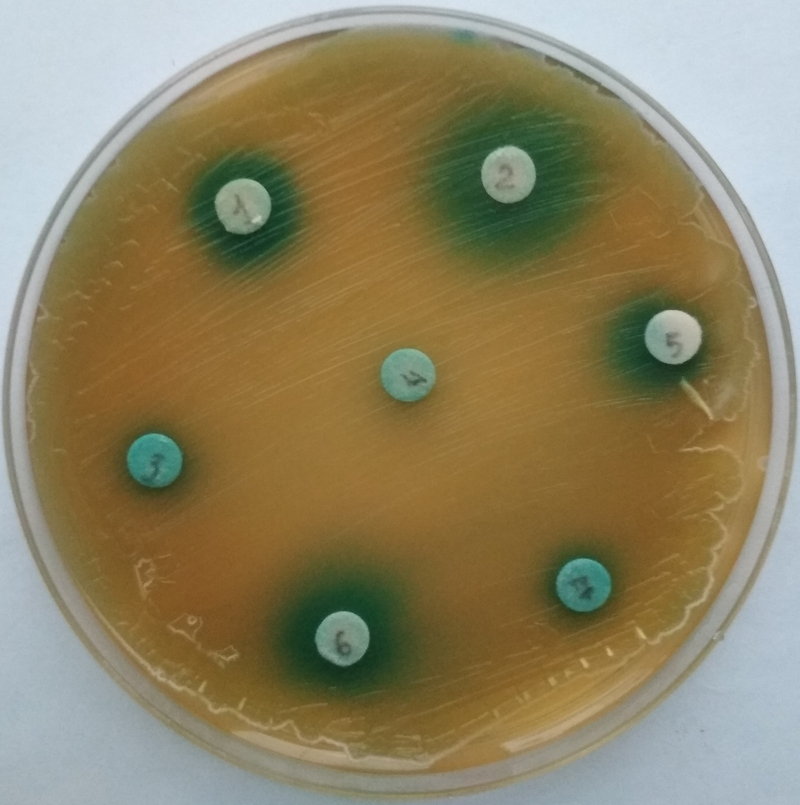
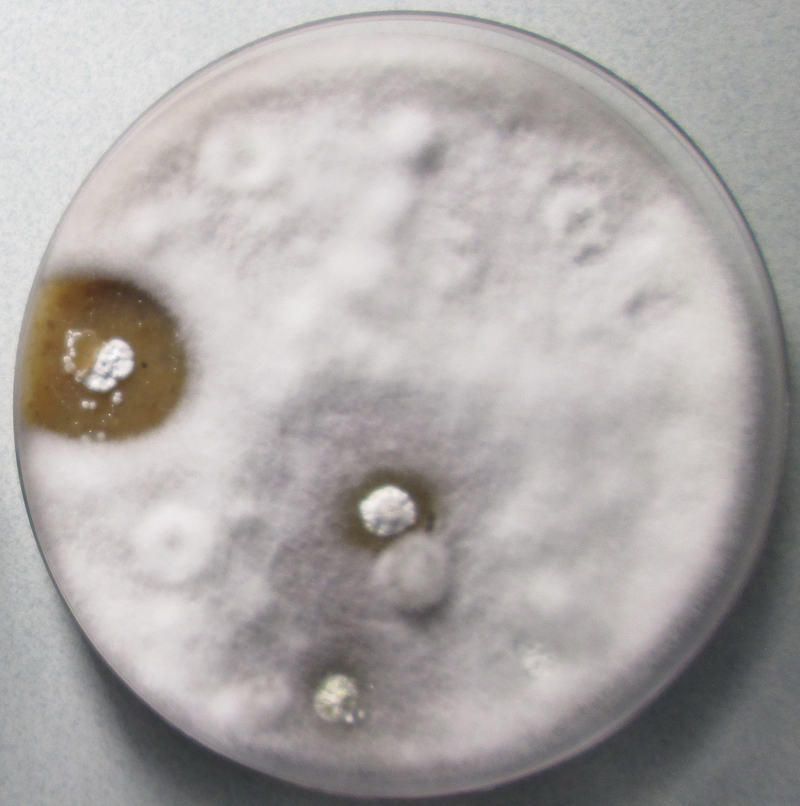
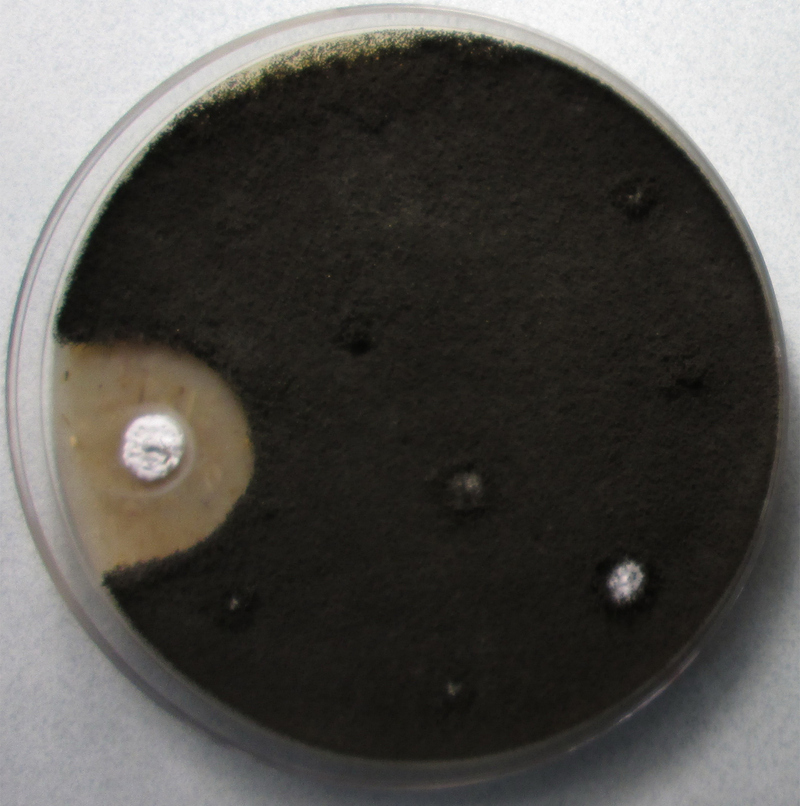
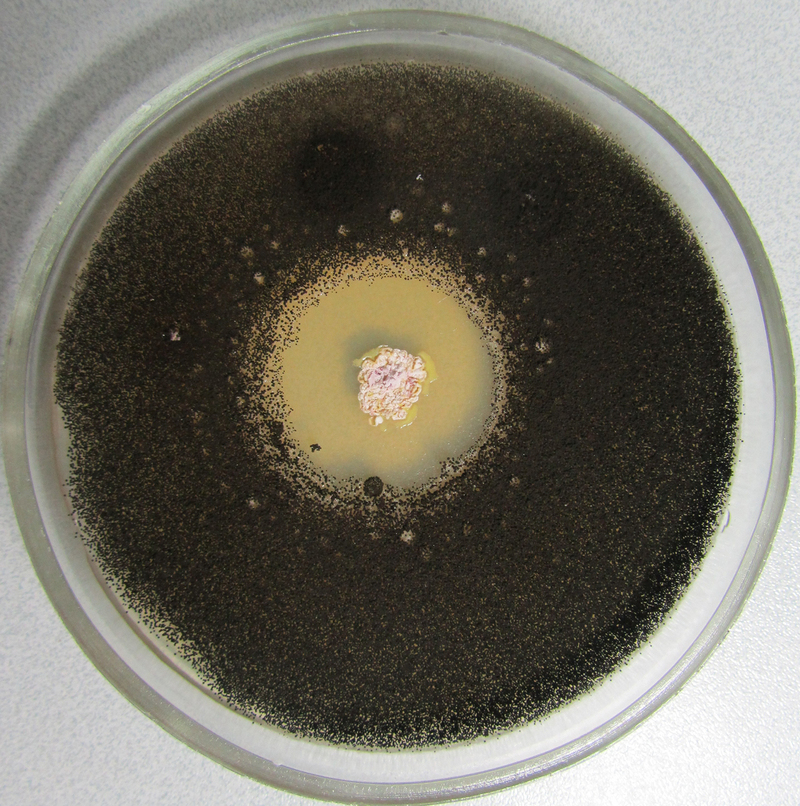
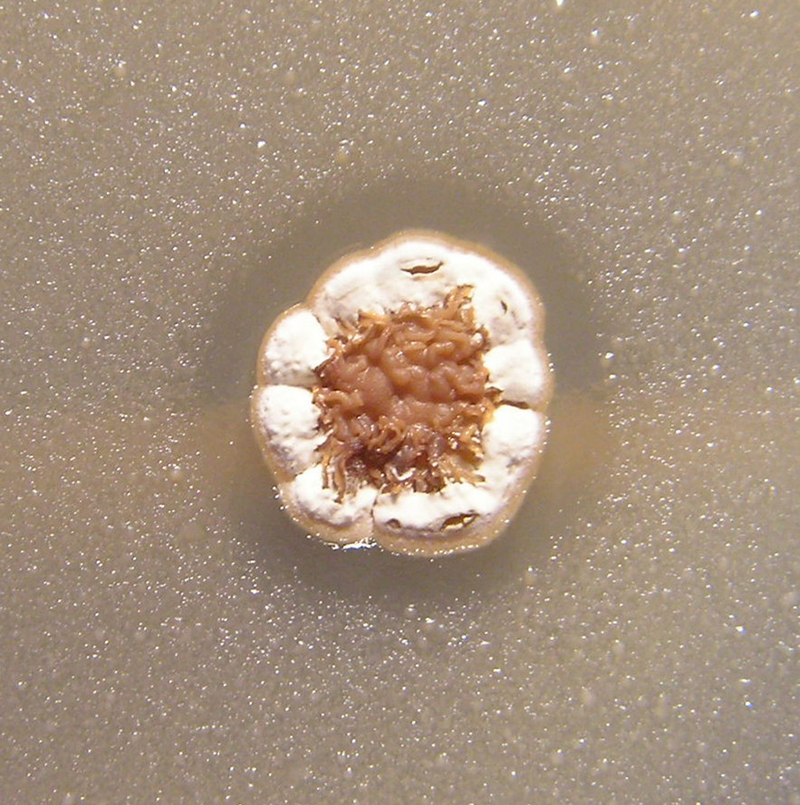
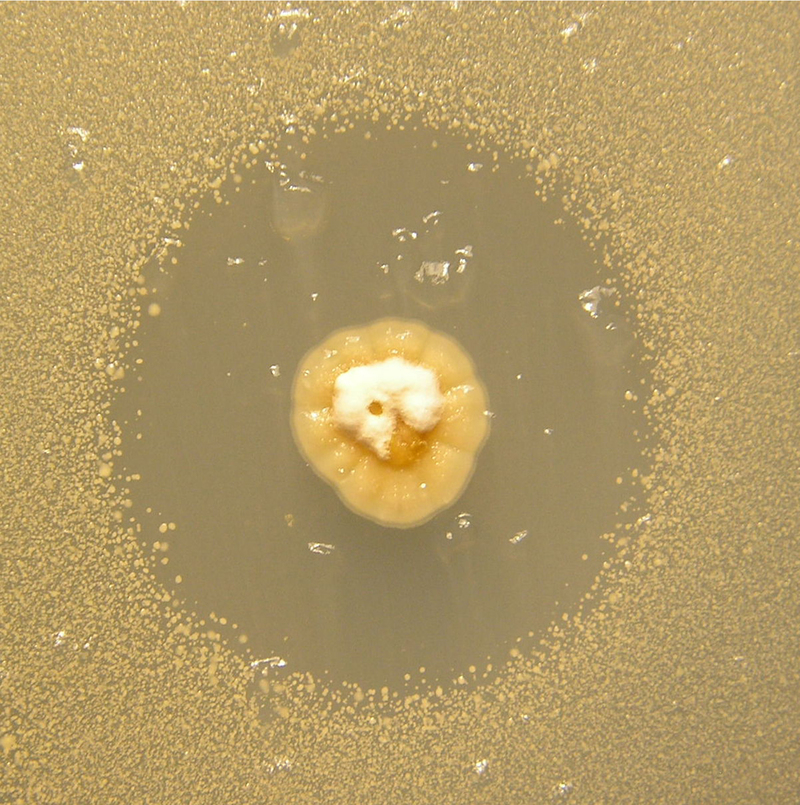
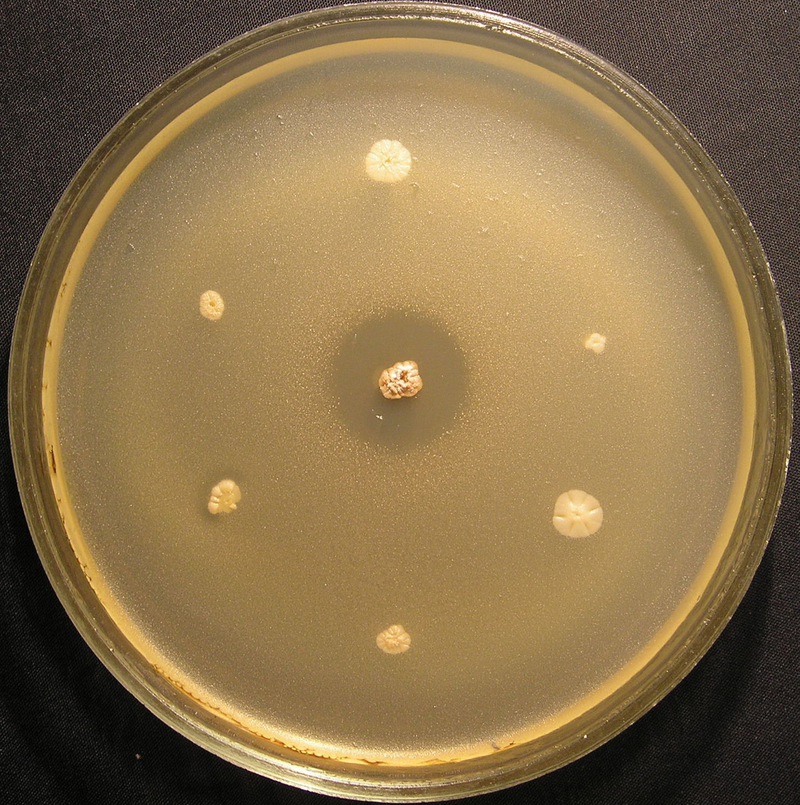
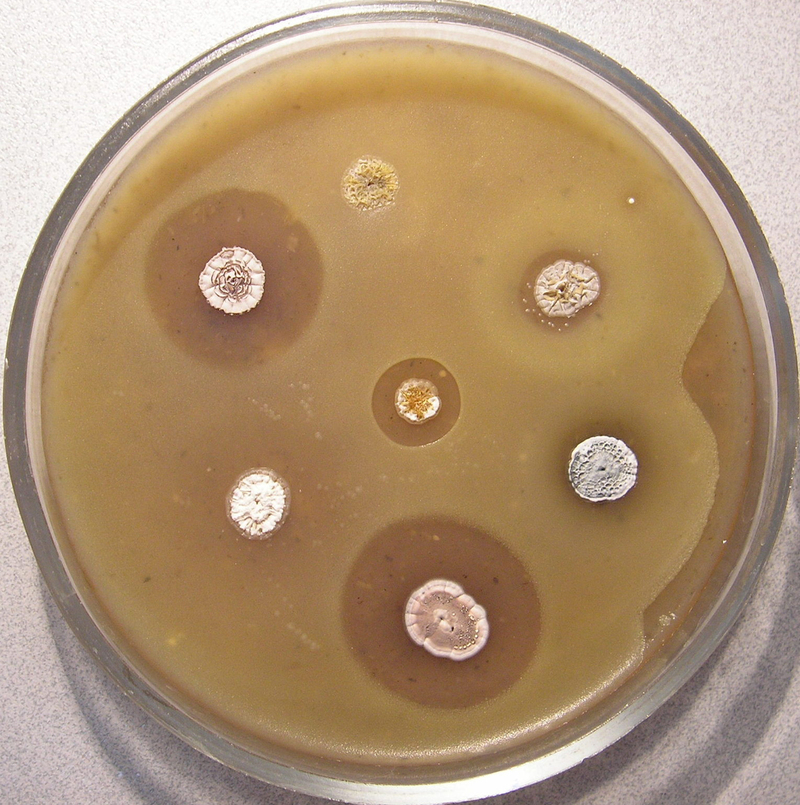
We use a large number of biotests to study the potential of natural isolates as producers of biologically active molecules, which allows us to evaluate their features, directions for further study and application.
To create optimal conditions for the cultivation of each isolate, we study their cultural and morphological features, such as growth on different nutrient media, at different pH values, temperature, salinity, ability to absorb food sources, etc.
Using gram-positive, gram-negative bacteria, yeast, mycelial fungi, we evaluate the antagonistic properties of natural isolates and their ability to produce antimicrobial compounds. Using biosensors, we carry out targeted screening of potential producers of certain classes of compounds, in particular thiopeptide antibiotics, pamamycins, as well as antibiotics that affect the cell wall of bacteria.
We study the ability of isolated actinomycete strains to produce hydrolytic enzymes. We are also studying their potential as phytostimulating bacteria, investigating the ability to produce phytohormones, siderophores, solubilize compounds of phosphorus, zinc, etc.

